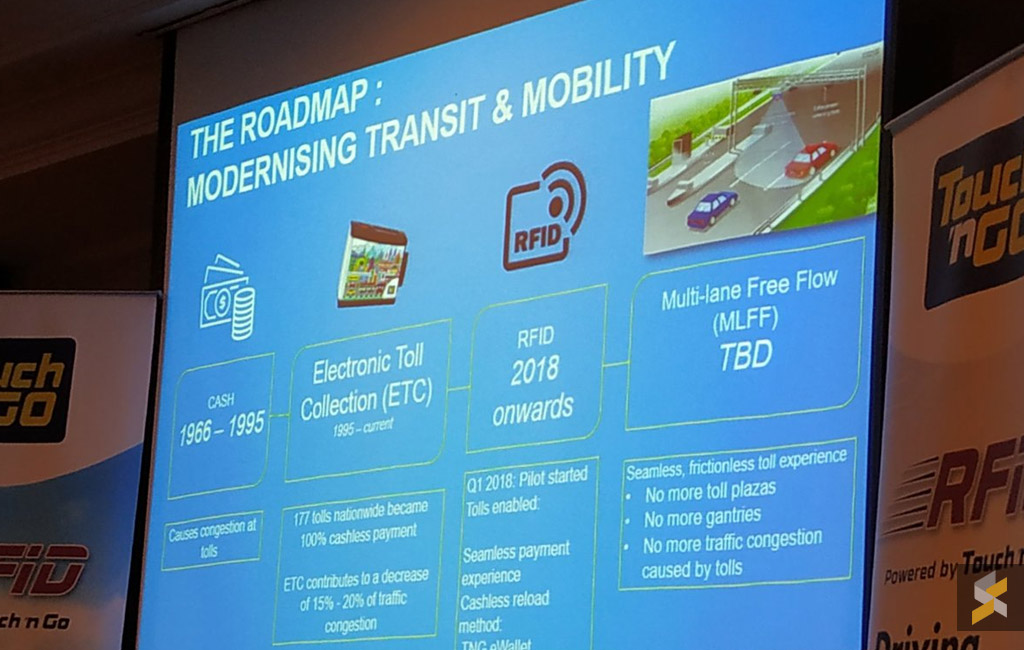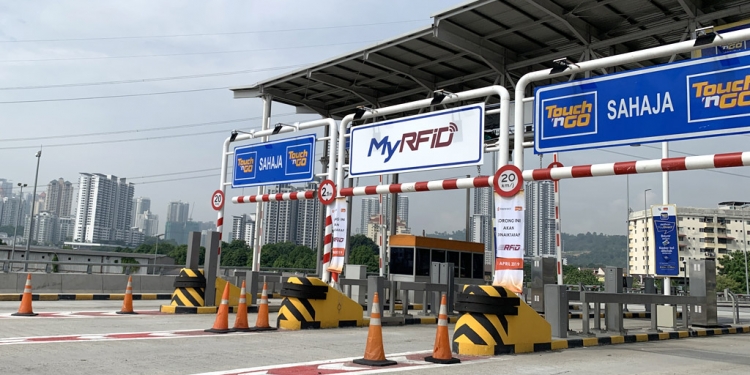The government said that it is looking to implement an RFID-based toll collection system at all toll plazas nationwide soon. While a definitive timeline was not given, Works Minister, Baru Bian believes that it can be done within three years, The Star reported.
“Three to five years is too long. But give us time to ensure that it is properly implemented to benefit road users,” he said when speaking at the Highway Concession Conference 2019, held in George Town, Penang on Monday. The event was jointly organised by the Works Ministry and Malaysian Highway Authority (LLM) in cooperation with Highway Concessionaires Malaysia.
The minister said that a nationwide rollout of the RFID toll system could be the precursor to a gantry toll system that requires no booths also known as a multi-lane free-flow system (similar to Singapore’s ERP and Australia’s e-TAG system) that could start operation in Malaysia within the next two years.
The LLM had originally planned to deploy RFID toll systems from the third quarter of last year.

Introduced in August 2018, the RFID toll system is still in its early stage and have yet to see its full potential due to legacy highway toll system.
The RFID toll system developed by Touch ‘n Go for example is designed to be used a multi-lane free-flow system that allows cars to pass through unhindered without the need to stop or even slow down.
The RFID scanners currently used by Touch ‘n Go are capable of picking up RFID tags across three lanes but the company has limited the scanner’s range so that it won’t accidentally pick up tags from other vehicles on other lanes.
For a barrier-free toll system to be a reality in Malaysia, the RFID-based toll payment system needs to be deployed nationwide. At the same time, there needs to be a joint effort from the government, highway operators, payment vendors and even enforcement agencies like JPJ (to assist with a reliable number plate recognition system) to ensure that the system is reliable.








